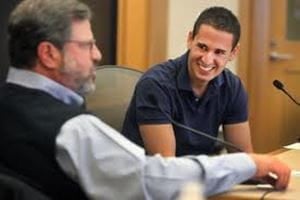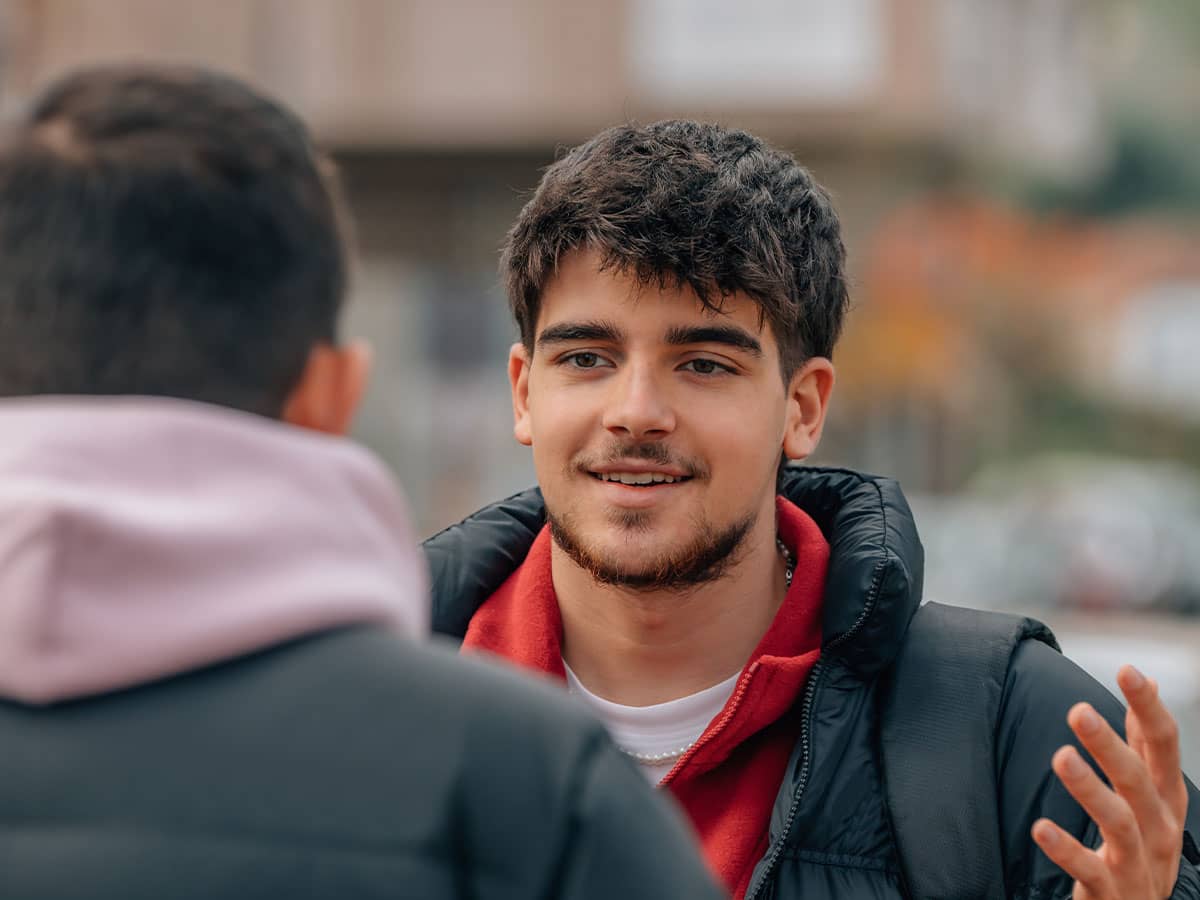
Gayle: You experienced domestic abuse when you were a child and your parents were going through a contentious divorce. How did you find the strength to rise above this experience?
Matt: My experience with abuse as a child during my parents' divorce was shaped by my frame of reference. I did not know another reality, and I assumed that it was not necessarily out of the ordinary. In terms of 'rising above it,' I never felt sorry for myself and I never believed that it would get the best of me. I had great teachers in school and I focused on my work as a diversion whenever possible. I felt like school was a source of power, and a way that I could differentiate myself and become independent.
Gayle: Do you feel a special connection with children who now live with the circumstances you faced in childhood?
Matt: I do feel a connection with children currently in similar situations. However, the message I'd like to send is not one of pain, but one of empowerment. Too often, the images we see and the stories we hear about abused children end with troubled lives and desperate circumstances. That does not have to be the case. There are also many stories about those who have overcome similar circumstances--I know, because a lot of these individuals have reached out to me in response to the Boston Globe article.
Gayle: Have you been able to use your status as a Harvard Law student to help children in less than ideal circumstances?
Matt: Harvard Law School has given me a platform for helping children, and the goal is twofold: First, it is important for children in similar circumstances to know that they can overcome adversity--seeing someone who has done so and is not embrassed about his past can help. Second, the actual fundraising is important, as organizations like Big Brother Big Sister need resources to maintain mentorship programs and recruit volunteers.
Gayle: Did it take courage to reveal this part of your childhood publicly?
Matt: I was reluctant to discuss my past for many years. It was convenient not to discuss and I didn't particularly like thinking about it. Life was good and I was happy, and it was something I preferred to leave behind. Harvard approached me about writing a student profile on me for graduation in December, and I thought about what that profile might say. I realized that I, basically, never discussed the first half of my life.
I scratched my head and thought about it, and repressing it just seemed selfish and self indulgent. I liked having mentors and supporters when I was going through tough times as a child, and it was pretty despicable that I hadn't done more to extend this help to others. I'd volunteerd as a mentor to children in the Bronx prior to law school, but I didn't share my story. How could these kids relate to me if they didn't think I could understand their frame of reference?
Sharing my past was a scalable way to help out and make up for lost time. It was tough at first--I'm typically private with my personal life, and there was a scary vulnerability that came with emailing my classmates and other folks I know to explain why I was soliciting donations. However, it was also freeing--I felt like I was in control of my past and that I'd overcome it. Moreover, I felt like I could turn it into a positive. Beyond children hearing about my story, I also hope adults who faced abusive situations tune in. I hope that I can help them overcome their embrassament and apprehension and conquer their demons by making a difference in the life of someone else. Things are always less scary with the lights on.

